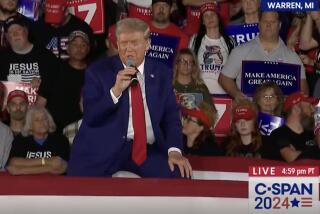Ask Laz: Dubious student ‘award’ is back — and it’s just as sneaky as before

- Share via
Sofia says she was “appalled by the duplicity” of a letter her 14-year-old daughter received from the National Academy of Future Scientists and Technologists informing her that she’d received an Award of Excellence.
Like numerous other parents who’ve contacted me in recent days, Sofia wants to know how this seeming racket continues.
Apparently it’s a topic worth revisiting because the National Academy of Future Scientists and Technologists is up to its old tricks, once again contacting thousands of young people with an “award” that’s really just a well-disguised sales pitch.
I wrote about these guys a year ago, after my own son received one of the group’s letters. What I found after looking into things left me, like Sofia, stunned by a business practice that aims to deceive young people.
The organization’s letter to my son said he was being honored “for outstanding academic achievement, leadership potential and determination to serve humanity in the field of science and technology.”
It said a “highly selective” process was used to pick students to serve as delegates at the academy’s summertime Congress of Future Science and Technology Leaders being held in Massachusetts.
The letter also suggested that attendance at the event can improve a student’s chances of getting into a top-notch university.
I spoke with a number of college admission officers. Each told me that participating in things like this, while possibly enriching on a personal level, will play little if any role in determining whether a student will receive an acceptance letter.
“The presence of such an activity on a USC application is not going to have a significant impact on our admission committee’s deliberations,” said Tim Brunold, USC’s dean of admission.
The presence of such an activity on a USC application is not going to have a significant impact on our admission committee’s deliberations
— Tim Brunold, USC’s dean of admission
What’s really going on here is that high school students are being misled to think they’ve earned an academic honor when in fact they’ve merely received a direct-mail solicitation for an event that will cost their parents $985, or $1,585 with hotel accommodation. Airfare is extra.
How does National Academy of Future Scientists and Technologists find kids? It turns out the group obtains access to information students submit when they sign up for standardized tests such as the PSAT.
Note to L.A. Unified School District: This stinks. Cut it out.
As I wrote before, there’s undoubtedly value in young people attending a conference where prominent figures may speak and where students can make new friends. But any such program that’s above-board shouldn’t have to rely on trickery to get people to enroll.
I scoured the academy’s website Tuesday to confirm that last year’s costs were the same. It turns out that prices aren’t listed anywhere.
I called the academy and encountered a service rep who told me at first that she couldn’t reveal the cost of attending the Congress. But after some prodding on my part, she finally acknowledged that last year’s prices were unchanged.
That sort of obfuscation may be a cunning way to sell used cars. It’s no way to deal with children.
For more info, check out my earlier column here.
Got a question? Email me at AskLaz@latimes.com. And follow me on Twitter @Davidlaz.
To read the article in Spanish, click here
MORE FROM DAVID LAZARUS:
Fixing healthcare: Which single-payer system would be best for California?
Coma? Death? You’re still expected to make car payments
Direct-to-consumer drug ads: A bad idea that’s about to get worse
More to Read
Inside the business of entertainment
The Wide Shot brings you news, analysis and insights on everything from streaming wars to production — and what it all means for the future.
You may occasionally receive promotional content from the Los Angeles Times.











